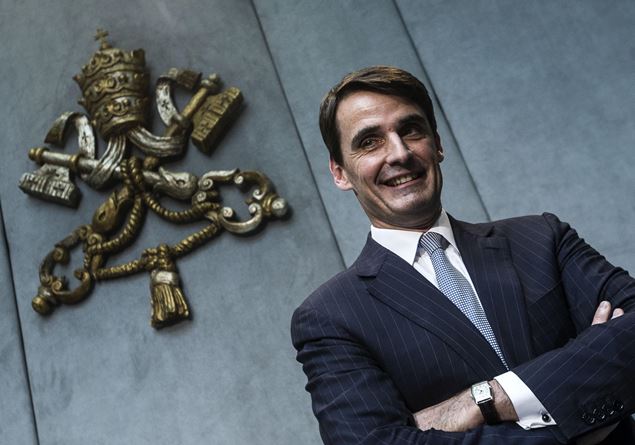Inequalities are not just an economic issue: they are a social and moral wound that runs through our time. Jean-Baptiste de Franssu, president of the IOR – the Institute for Works of Religion, the Vatican “bank” that administers the assets of the universal Church – recalled this clearly during his speech at the Happening of the Community of Sant’Egidio Dare for peacededicated to the relationship between economy and justice. «Inequalities – he said – raise the question of how economic resources, such as income and capital, are distributed between individuals and social classes». Today, he continued, we are witnessing a concentration of wealth in the hands of a small elite and a progressive impoverishment of the middle classes. «An excessive concentration of wealth can hinder household consumption and slow down growth».
De Franssu identified five crucial areas of reflection: the distribution of wealth, economic opportunities, growth and development, social stability and public policies. In each of these areas, he explained, the lack of equity generates fragility: “Unequal access to education or health can reduce overall productivity and aggravate inequalities in the long term.” The president of the IOR, often defined as “the Pope’s banker”, anchored his analysis to the Word of God. “You will always have the poor with you” (Mk 14.7), he recalled, quoting the Gospel of Mark, words spoken by Jesus in Bethany a few days before Easter. And he added an echo of Luke (6.20): «Blessed are you poor, for yours is the kingdom of God!». In these words, he explained, there is the essence of the Christian message: not resignation, but the call to responsibility. «Pope Francis invites us to give a tangible response to the millions of poor people who find indifference or aggression as the only response. Their presence must not lead us to habit, but involve us in a sharing of life that does not allow delegations.”
Then the clearest thrust: «The concept seems to be gaining ground according to which the poor are responsible for their condition and represent a burden for an economic system that privileges the few. But a market that ignores ethical principles creates inhumane conditions, affecting people already in precarious situations.” De Franssu also recalled the words of the Pope recently pronounced in Asia: «Economic growth, when guided by rational and balanced decisions, can combine social justice and the common good, provided that housing, education and healthcare are an integral part of progress». In support of his analysis he cited Oxfam data: the richest man on the planet could soon be “worth 1000 billion euros”, while 700 million people live below the poverty line and half of humanity survives on less than 6.5 euros a day. “These are figures that question the conscience”, he warned, recalling that the Catholic Church has long invited the most developed economies to also reflect on the debt of poor countries and on climate inequalities.
The Gospel, de Franssu reiterated, “invites compassion and justice towards the poor, teaching humility, charity and sharing”. The Social Doctrine of the Church, he added, offers a wealth of principles on which to found a new economy capable of putting the person at the centre. Precisely in this perspective, it will be born at Collège des Bernardins an international research center dedicated to “Religious Finance”, a place of dialogue between different spiritual traditions to reflect on how religious assets can become instruments of equity. «Inequalities – he concluded – pose a fundamental question to the economy: how to guarantee sustainable growth while maintaining a just and equitable society?». And the final warning sounds like a warning: “Without ethics and faith, this dialogue between inequalities and economics will be more difficult.”


